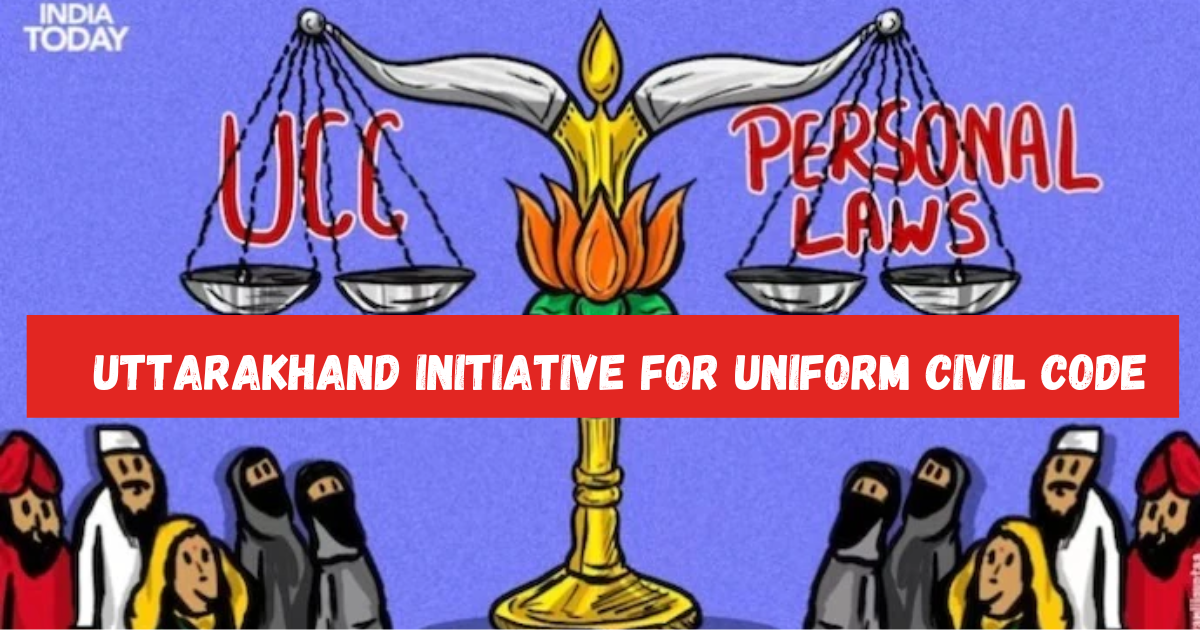Uttarakhand bill for UCC:

Recently Uttarakhand govt. have taken a huge initiative in process of moving towards promoting equality and social cohesion in society by taking up a legislative bill of establishing uniform civil code that include various rights such as equal inheritance and property rights for daughter and sons, banned on polygamy, child marriages, end of halala and iddat, recognition of live in relationship , registered marriages and many more. But before understanding the importance of this initiative it is important to look at the comprehensive overview of its history ? what exactly UCC is? and why it has not bee applied on Indian territory.
Uniform Civil Code in India: A Comprehensive Overview
The Uniform Civil Code (UCC) in India refers to a proposed set of laws aimed at creating a common set of civil laws for all citizens, irrespective of their religion, ethnicity, or background. The idea behind the UCC is to promote gender equality, secularism, and social justice by ensuring uniformity in matters such as marriage, divorce, inheritance, and adoption. UCC comes under directive principle (indtruction that state should mentioned in constitution part 4) thus it is not fundamental rights and cant be applied uniformly in states. you may know that we have different lawas for civil and criminal case – criminal laws are uniform in all over the country nut it is not the case with civil laws due huge diversity in India.
History and Background:
The concept of a Uniform Civil Code has its roots in India’s colonial past. During British rule, various personal laws based on religious customs and traditions were codified for different communities, including Hindus, Muslims, Christians, and others. This led to a fragmented legal system, with separate laws governing different aspects of personal life for different religious groups.
After India gained independence in 1947, the framers of the Constitution envisioned a secular and inclusive society where all citizens would be treated equally under the law. Article 44 of the Indian Constitution, under the Directive Principles of State Policy, calls for the enactment of a Uniform Civil Code, stating that “The State shall endeavor to secure for the citizens a uniform civil code throughout the territory of India.”
Challenges and Debates:
Despite the constitutional mandate, the implementation of a Uniform Civil Code has been a subject of intense debate and controversy in India. One of the primary challenges is the diverse religious and cultural landscape of the country, with different communities adhering to their own personal laws and traditions. Critics argue that imposing a uniform code could infringe upon religious freedoms and cultural identities.
Current Status and Future Prospects:
As of now, India does not have a Uniform Civil Code, and the issue remains a contentious topic in political and legal circles. While some political parties advocate for its implementation as a means of promoting gender justice and social cohesion, others oppose it on grounds of religious freedom and cultural autonomy.